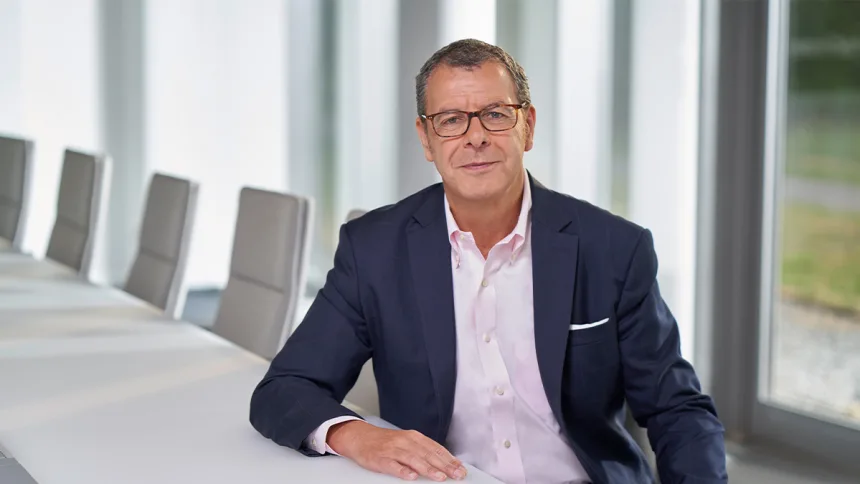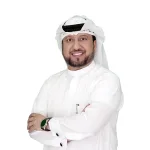Taking the time to have a productive discussion with experts yields insightful opinions. This time, we had the opportunity to sit down with Thierry Bernard, CEO of QIAGEN. QIAGEN is a Netherlands-based multinational company that specializes in sample and assay technologies for molecular diagnostics, applied testing, academic research, and pharmaceutical research. Thierry’s insights on companion diagnostics, his vision for the next ten years, and his thoughts on tuberculosis make this an unmissable interview-article.
MedEdge MEA: How has QIAGEN made a difference for customers during the pandemic, especially in the Middle East?
Thierry Bernard: I believe that in the Middle East and worldwide, many people remember that during COVID, at least two companies managed to develop a vaccine very quickly, with widespread distribution achieved within a year. However, many tend to forget that for at least a year to a year and a half, there were no vaccines, and no tests either. When COVID first emerged, there were no testing solutions, and everyone was caught by surprise. Alongside other companies, QIAGEN was a pioneer at the forefront of developing these essential tests.
First, we began developing tests to ensure we could detect the virus. Developing a test is not easy; it requires access to the virus strain and a thorough understanding of its mutations, as the test must align with these changes. In less than six months, our company developed 12 new products related to COVID to assist countries, authorities, and public health laboratories in addressing the pandemic in various ways.
ME: How do you see QIAGEN’s role in tackling tuberculosis and other infections in the MEA Region?
Thierry: QIAGEN considers the fight against tuberculosis a priority. It is a public health priority and a patient priority. To support this, we have established strong collaborations with the WHO, as well as robust partnerships at the local level.
QIAGEN has developed a modern solution for testing latent tuberculosis, which is far more advanced than the outdated skin test that many are familiar with. Antiquated technologies are not very patient-friendly. Our new test is much better, quicker, and more accurate, and we are working to bring it to countries worldwide.
We are also assisting governments and public authorities in understanding the value of prevention and testing. Statistics show that every $1 invested in latent tuberculosis testing can lead to up to $40 in savings for each treatment. This is backed by data—not just from QIAGEN, but from various sources—that demonstrates that countries with high levels of tuberculosis often lack proactive public health policies focused on both testing and treatment
ME: What impact do you expect the collaboration with Lilly on the APOE genotyping kit to have on Alzheimer’s disease?
Thierry: Neurodegenerative diseases, especially Alzheimer’s, are set to become some of the most challenging health issues in the future, making early detection essential. QIAGEN has a strong history in companion diagnostics, collaborating with pharmaceutical companies to advance precision medicine. This approach recognizes that patients with the same condition, such as cancer, can respond very differently to the same treatment. One patient may experience positive effects, while another may face negative outcomes. Companion diagnostics help ensure that treatments are given to those most likely to benefit, improving both effectiveness and cost-efficiency.
In partnership with Eli Lilly, QIAGEN is developing tests to identify patients who will respond positively to new Alzheimer’s drugs. Companion diagnostics are becoming fundamental to the future of healthcare.
ME: What upcoming innovations excite you most and how might they transform molecular testing and patient care?
Thierry: PCR gained significant recognition among the public during the COVID-19 pandemic, as we mentioned. Next-generation sequencing provides the ability to understand what we call the human genome. However, there is a technology called digital PCR that offers more information than PCR without the costs and complexities associated with next-generation sequencing. QIAGEN is becoming a leader in this area.
Regarding companion diagnostics and preventive medicine, we aim to become the most digital and AI-driven company in our industry, focusing on both life sciences and clinical diagnostics. AI will transform how we approach diagnostics.
In my view, AI will increasingly merge results from in vivo diagnostic imaging, such as radiography, with in vitro diagnostics. This integration has tremendous potential. This is what I find particularly exciting.
Also Read: ‘‘We Are Shifting From A Reactive To Preventive Approach In Healthcare’’
The environment is constantly evolving, and innovation is key. Our understanding of the human genome, the roles of DNA and RNA in the body, and the impact of the microbiome continues to expand rapidly.
ME: How might advancements in biotechnology shape personalized medicine over the next ten years?
Thierry: Every country is under significant cost pressure in healthcare. Meanwhile, as mentioned before, technology continues to advance, but these advancements are not becoming cheaper. Each country must focus on cost-efficiency, making it crucial to invest in the right treatment or test for the right patient.
Tomorrow, we must be even more precise in ensuring that we administer the right antibiotics to the right person for the right duration.
Recently, you may have seen a publication estimating that, in the coming years, around 60 million people could die from bacterial resistance. This issue arises because we often prescribe broad-spectrum antibiotics without proper patient testing. While effective in killing bacteria, this approach also drives antibiotic resistance.
Bacteria are smart, they mutate and evolve to resist various antibiotics. This trend cannot continue. In the future, we need to be far more precise, ensuring that we provide the right antibiotics to the right patient for the appropriate duration. This overall shift is moving toward precision medicine, which, to me, is becoming increasingly essential.



















